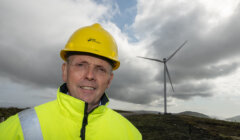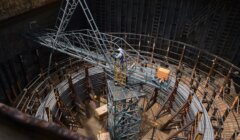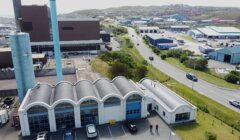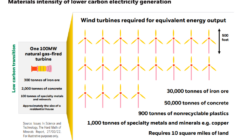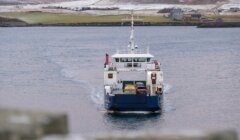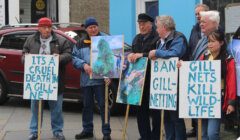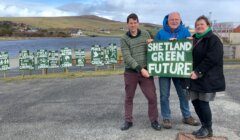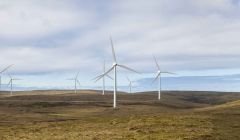Letters / ‘I am not yet convinced’
I recently received the magazine Building Shetland’s Energy Future and on opening it, the first photo I saw showed a large area of hilltop peatland cleared to create the gigantic steel reinforced concrete base for a windmill; the area cleared for the construction of this one windmill is substantial.
If this disruption of the hilltops is replicated with every planned windmill; the loss of the carbon capturing peatland will be enormous, the new road connecting the wind farm sites is also shown in the picture which will add to the disturbance and destruction of this pristine natural habitat.
This devastation of these Shetland peatlands, which were created by nature over thousands of years; is being portrayed by the people with financial interests in the wind farm development as being environmentally friendly?
This rollercoaster of renewable energy developments is being built, we are told, to replace our dependency on the oil industry for our power supplies, but will it?
All those windmills contain bearings that will require lubrication with oil, if we don’t depend on an oil industry to supply it; where will those lubricants come from?
The wind turbines will require regular maintenance and oil changes during their lifetime, those services can be provided using the connecting roads network built during the onshore wind farms construction phase.
But the maintenance of the offshore developments proposed in the seas around Shetland and beyond, in unpredictable and often extreme weather conditions will be a whole different matter.
If the regular maintenance cannot be provided by sea, will it then be done by helicopter, what would be the environmental cost of that?
Has the environmental cost of the lifetime maintenance of any of the windfarms been taken into consideration?
The magazine may convince some within our community that these developments are environmentally friendly, but I am not yet convinced.
Become a member of Shetland News
The magazine also mentioned “Supporting Shetland’s Economy”, and as the present largest provider to the Shetland economy is fishing and aquaculture; it is inconceivable how denying the Shetland fishing fleet access to enormous areas of one of our islands greatest assets – the fishing grounds around our shores – can be supporting the fishing industry in any way whatsoever.
These fishing grounds are the source of a large variety of sustainable nourishment provided by nature as is evidenced by the abundance of wildlife annually seen thriving around our shores.
Environmental activists are presently protesting about the environmental destruction being done by practically every commercial industry other than wind farm development, but do they have any proper answers or solutions to the problem of climate change?
Shutting down established industries may be their answer to the problem but encouraging the industries to clean up their act may be a more sensible and achievable solution.
William Polson
Whalsay
Become a member of Shetland News
Shetland News is asking its readers to consider paying for membership to get additional perks:
- Removal of third-party ads;
- Bookmark posts to read later;
- Exclusive curated weekly newsletter;
- Hide membership messages;
- Comments open for discussion.
If you appreciate what we do and feel strongly about impartial local journalism, then please become a member of Shetland News by either making a single payment, or setting up a monthly, quarterly or yearly subscription.



































